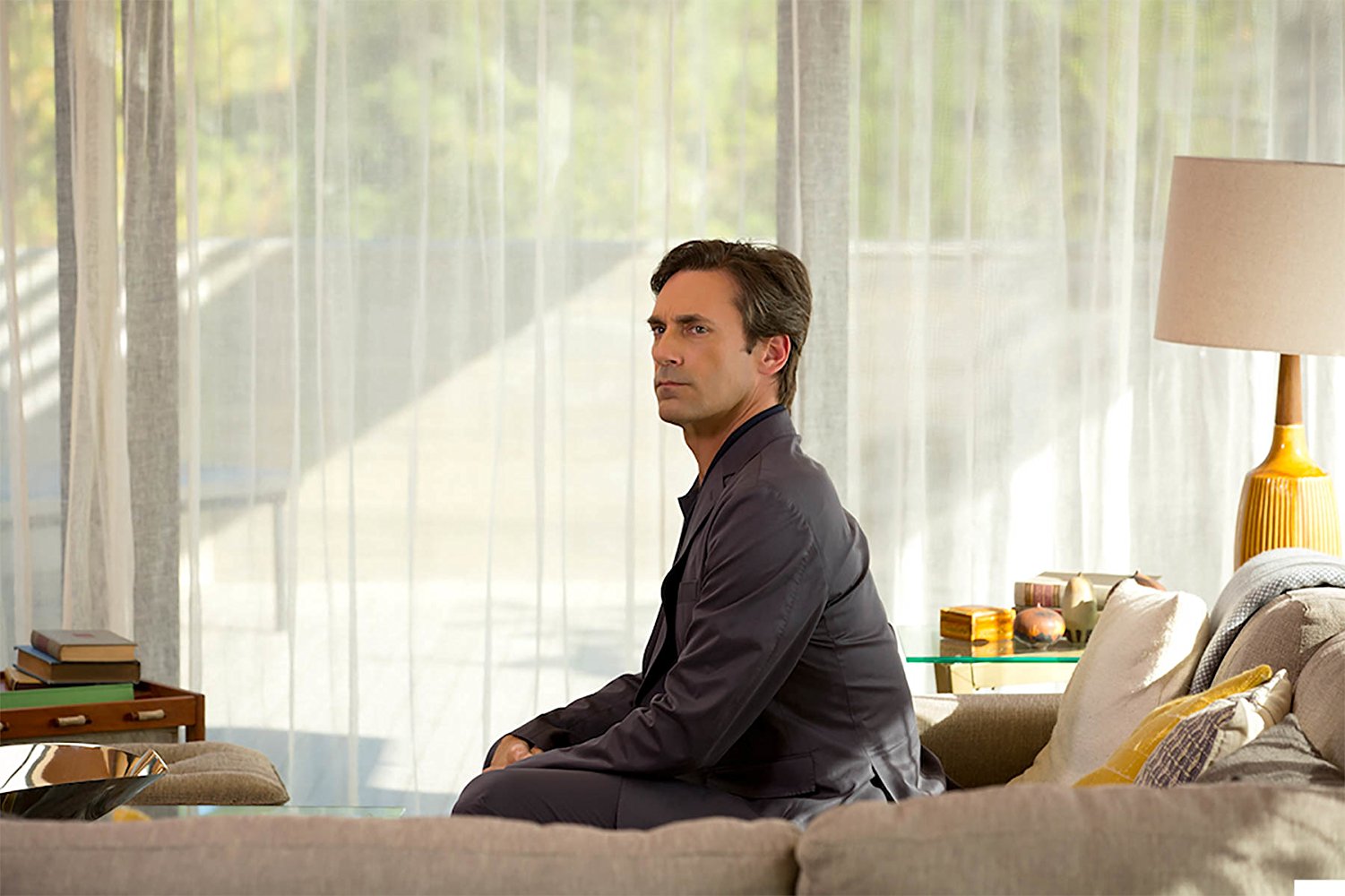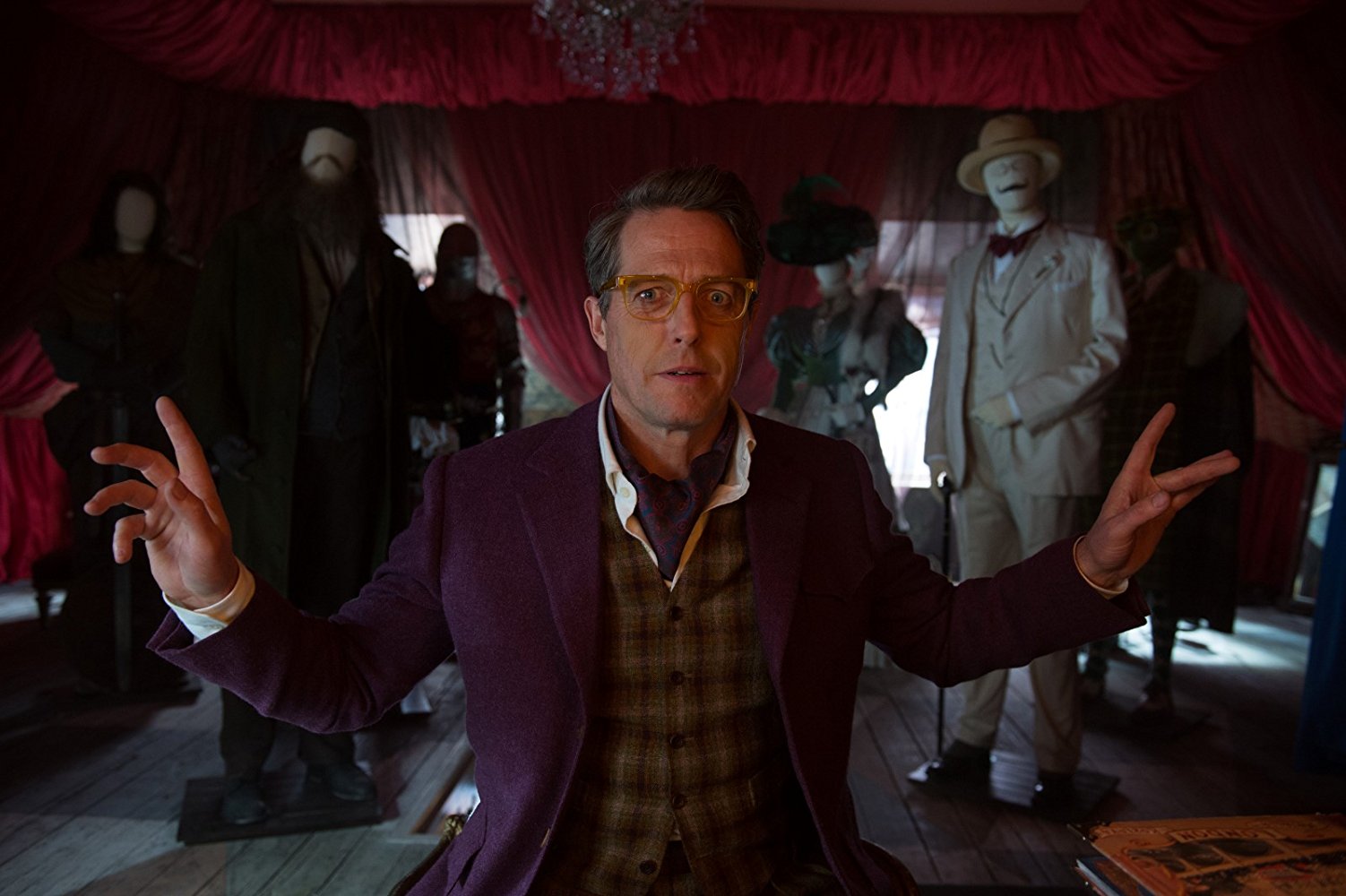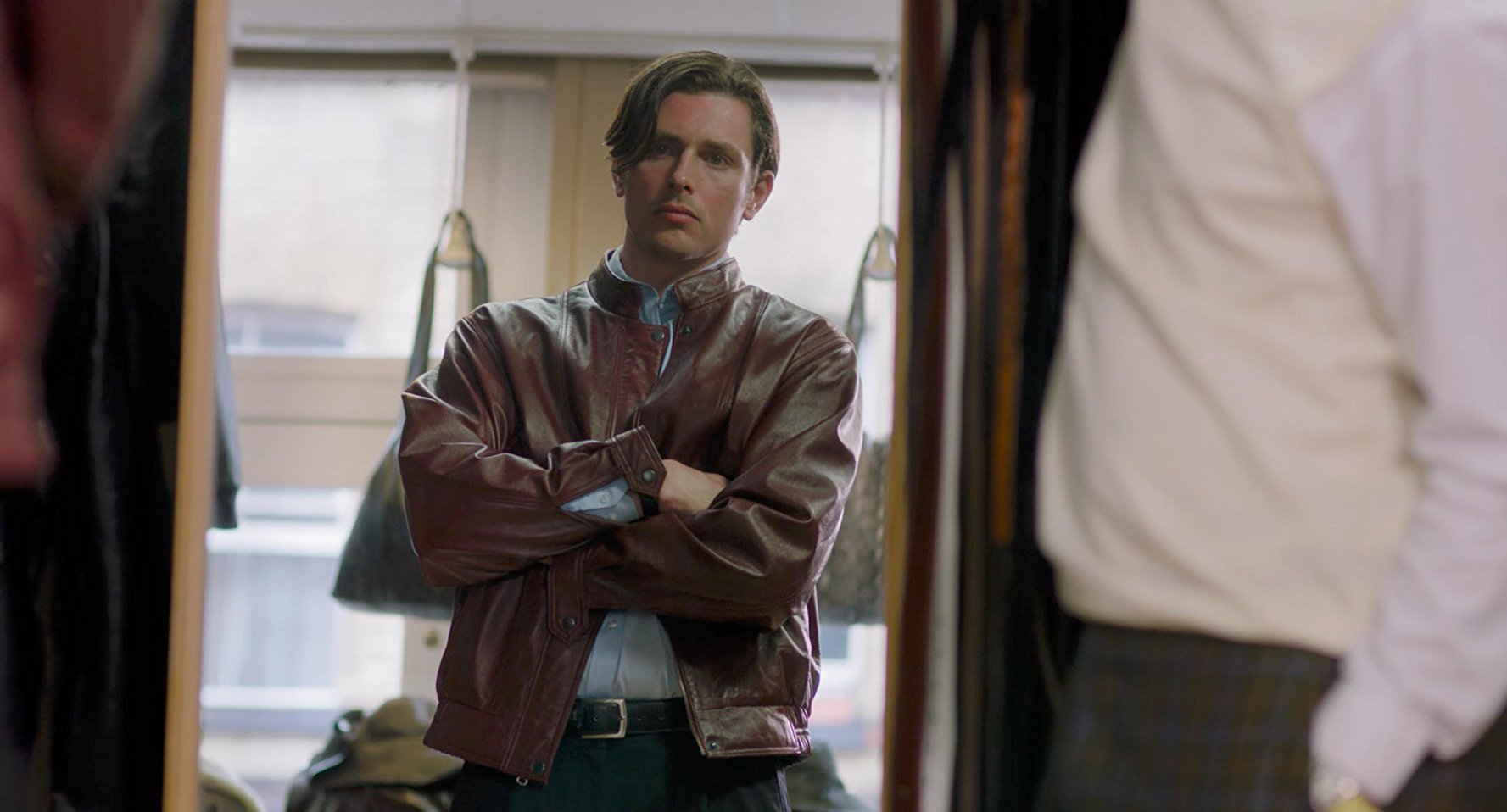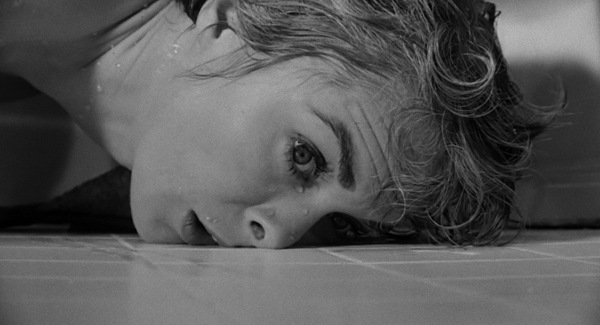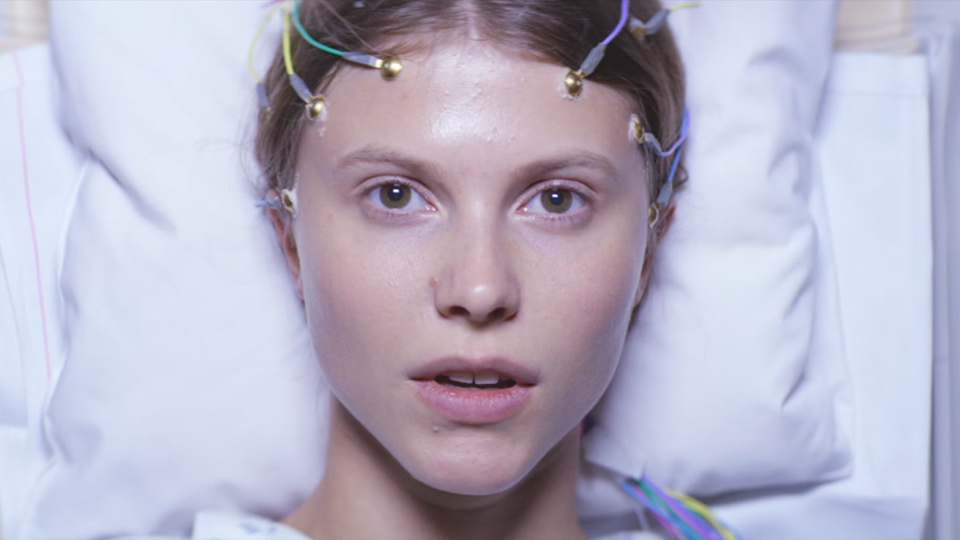Adapted by Michael Almereyda from Jordan Harrison’s 2014 play, Marjorie Prime is a gently haunting and deeply affecting tale which deals with themes relating to what separates human beings from artificial intelligence and whether holding on to someone’s memories, even after their death, is an essential part of who we are. Set in a near-future, the film offers a thought-provoking look at humanity’s acceptance of AI despite all the obvious pitfall attached to it.
Veteran stage and screen actress Lois Smith is Marjorie, a widowed octogenarian struggling to keep the memory of her dearly departed husband Walter alive. To keep her mind occupied and loneliness at bay, Marjorie’s daughter Tess (Gina Davis) and son in-law Jon (Tim Robbins) offer the old woman the company of a “ Prime”, a computer simulated much younger version of her late husband, played with a mesmeric precision and majestic stillness by Jon Hamm. Programmed to interact with Marjorie by listening to second-hand accounts from the old woman and her relatives’, Walter is able to quickly pick up whole chunks of history as inaccurate as they are, and then retelling them as ifs they were cast iron truths.
Comments closed